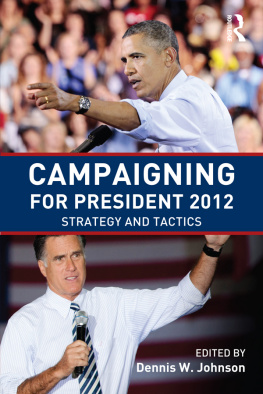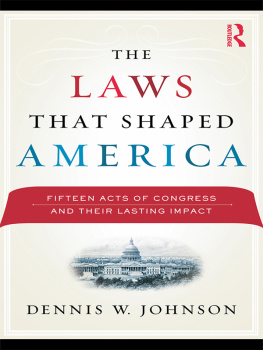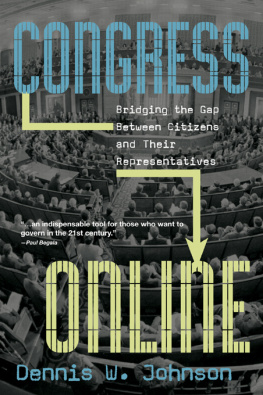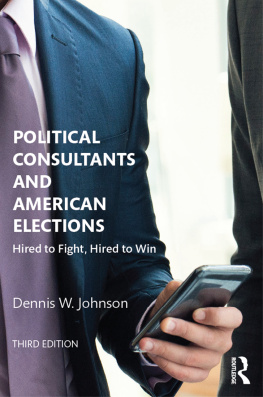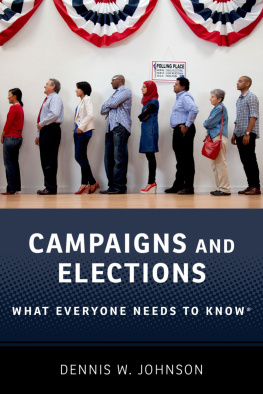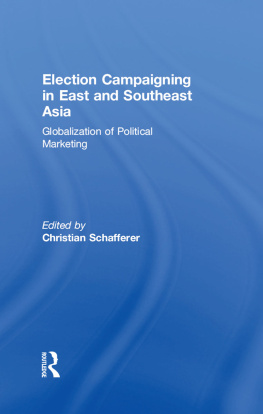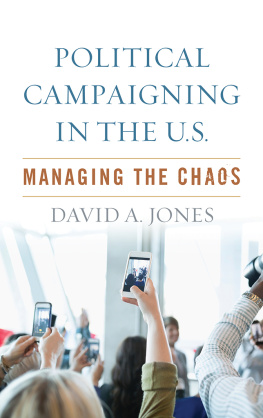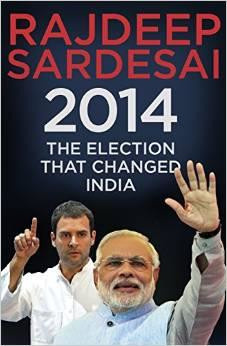Campaigning for President 2012
In this important and timely volume, Dennis W. Johnson has assembled an outstanding team of political scientists and political professionals to examine one of the fiercest and most closely fought presidential elections of our time. Like its predecessor, Campaigning for President 2008, Campaigning for President 2012: Strategy and Tactics focuses on political management. It is written by both elections/campaign scholars and practitioners, who highlight the role of political consultants and campaigns while also emphasizing the strategy and tactics employed by the candidates, the national political parties, and outside interests. The contributors explore the general mood of the electorate in the 2012 election, the challenges Obama faced after his first term, the primaries, money, communication, the important issues of the election, and finally the election itself.
Dennis W. Johnson is professor of Political Management at the George Washington University Graduate School of Political Management. He is the author of a number of works on government, politics, campaigns and public policy, including No Place for Amateurs: How Political Consultants Are Reshaping American Democracy, 2nd ed. (2007), Congress Online: Bridging the Gap between Citizens and their Legislators (2004), The Laws that Shaped America: Fifteen Acts of Congress and Their Lasting Impact (2009), and Campaigning in the Twenty-first Century (2011). He is also editor of and contributor to the Routledge Handbook on Political Management (2008) and Campaigning for President 2008: Strategy and Tactics, New Voices and New Techniques (2009). All of his books were published by Routledge. During the 20102011 academic year, he was Fulbright Distinguished Lecturer at Jinan University, Guangzhou, China. He has served as director of the Masters of Legislative Affairs program, associate dean and interim executive director of the Graduate School of Political Management. He has also been a political consultant, specializing in candidate and opposition research for Democratic senatorial and gubernatorial candidates.
Campaigning for President 2012
Strategy and Tactics
Edited by
Dennis W. Johnson
First published 2014
by Routledge
711 Third Avenue, New York, NY 10017
Simultaneously published in the UK
by Routledge
2 Park Square, Milton Park, Abingdon, Oxon OX14 4RN
Routledge is an imprint of the Taylor & Francis Group, an informa business
2014 Taylor & Francis
The right of the editor to be identified as the author of the editorial material, and of the authors for their individual chapters, has been asserted in accordance with sections 77 and 78 of the Copyright, Designs and Patents Act 1988.
All rights reserved. No part of this book may be reprinted or reproduced or utilised in any form or by any electronic, mechanical, or other means, now known or hereafter invented, including photocopying and recording, or in any information storage or retrieval system, without permission in writing from the publishers.
Trademark notice: Product or corporate names may be trademarks or registered trademarks, and are used only for identification and explanation without intent to infringe.
Library of Congress Cataloging in Publication Data
Campaigning for president 2012: strategy and tactics / edited by Dennis
W. Johnson. Second edition.
pages cm
ISBN 978-0-415-84299-0 (hardback) ISBN 978-0-415-84300-3 (pbk)
ISBN 978-0-203-75814-4 (ebk) 1. PresidentsUnited States
Election2012 2. Political campaignsUnited States. 3. United
StatesPolitics and government2009- I. Johnson, Dennis W.
JK5262012.C38 2013
324.9730932dc23
2012051435
ISBN: 978-0-415-84299-0 (hbk)
ISBN: 978-0-415-84300-3 (pbk)
ISBN: 978-0-203-75814-4 (ebk)
Typeset in Bembo
by Cenveo Publisher Services
Contents
| Hon. Mark R. Kennedy |
| DENNIS W. JOHNSON |
PART 1
The Primaries |
| DAVID R. REHR |
| MICHAEL JOHN BURTON |
PART 2
Money, Communication, and Issues |
| ANTHONY CORRADO |
| JULIE GERMANY |
| EVAN TRACEY |
| CHARLES B. CUSHMAN, JR. |
| HENRY SUN AND DENNIS W. JOHNSON |
PART 3
The General Election |
| TAD DEVINE |
| STEPHEN K. MEDVIC |
| THOMAS N. EDMONDS |
| MATTHEW J. STREB |
| MICHAEL CORNFIELD |
Hon. Mark R. Kennedy
The Importance of Studying United States Presidential Elections
What is more important to those wishing to both understand and shape their environment than the study of how the world's most important leaders are selected? And which contest for a leadership post has greater influence on the direction of world events and attracts more global attention than United States presidential races? For Americans and non-Americans alike, the study of electoral contests for who occupies the White House is highly illuminating.
There will be a number of books on the electoral contest in 2012 between President Barack Obama and Mitt Romneysome by journalists, others by political scientists. But this volume is unique. It reflects the insight of both scholars and political practitioners who understand and appreciate the importance of applied politics. Their insight into the strategy and tactics of campaigns provides a window into how we determine the direction of our collective future. At George Washington University's Graduate School of Political Management, we train our students in the art, science, business, and ethics of applied politics. We are pleased to offer this edition as the third volume in the Graduate School of Political Management Series on Applied Politics.
Campaigns uncover the current state of play in the never-ending battle of competing ideologies. Each of us holds deep convictions on how our community and nation should be run. We don't understand some public policy issues. We don't really care about others. But for every individual there are certain issues about which they care passionately. Individuals on each side of these issues cover the spectrum with competing philosophies on each pole with varying shades of indifference in between. Comments like the 47 percent or you didn't build that take on completely different meanings depending on whether you look to the market or the government as the primary source of solutions. Elections give a glimpse into where a community is collectively along the ideological continuum.
Elections provide a window into how the electorate balances competing goals and aspirations. Our collective ideals, ideas, prescriptions, and passions compete with each other as candidates seek electoral office. In fact, since no candidate perfectly matches each of our personal belief systems, choosing whom to vote for requires each of us to balance competing interests and decide which issue positions are most important to us at that point in time. Elections force each to decide whether to vote and for whom. How individuals vote says a lot about how each reconciles the myriad of rival decision-making elements. How we collectively vote reveals a lot about what we as a people feel is most important.

